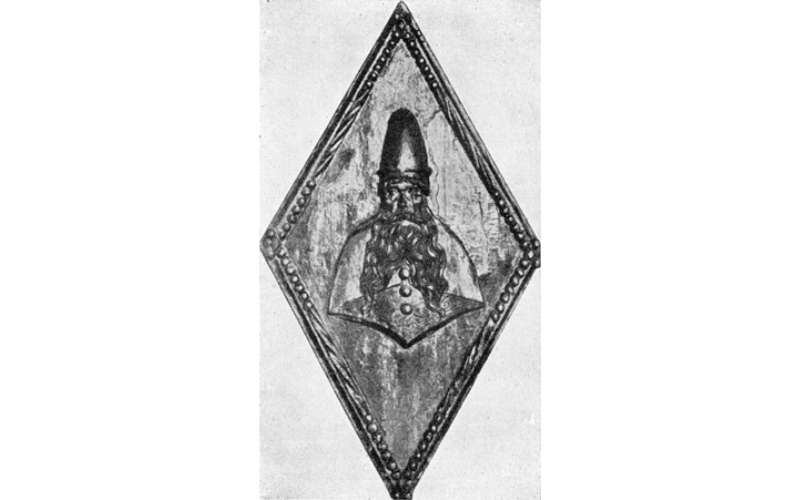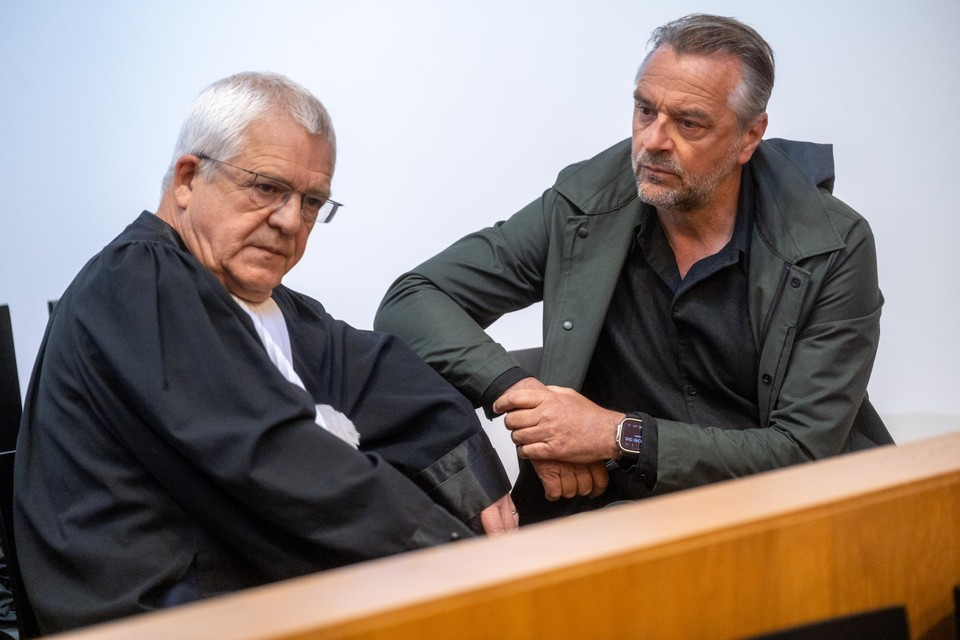New fear of the war in 1422

Arnold Paul Suvalep. « History of Narva. Danish and Livonian periods. » Start Here.
Since the peace treaty of 1421 did not allow all the contradictions between the Russian lands and the Hansa, the new complications in trade with the Russians were inevitable. Only Narva trade developed well.
In March 1421, the Tartu ambassador Frank went to Novgorod to find out the possibilities of resuming trade. There were rumors in Tartu that in Novgorod they threatened the arrest of merchants. The trip did not bring results. Novgorod sent a letter to the extremely harsh form, in which they accused of robbing merchants on the Neva, as well as that German merchants had deceived the Russians during the last world, selling them a false product. The letter indicated that the Novgorodians do not intend to trade with the cities of Hansa. In order to make clarity, all German merchants on one of the Sundays of April were called to the Novgorod Veche and their names were listed. Only thanks to the guarantee of the priest and representative of the German trade courtyard did they actually remain free. Merchants, along with goods, were recognized as hostages in revenge for Russian merchants taken over the sea.
Naturally, now from the Livonian cities, traveling to Novgorod was prohibited. However, the Hanseatic cities were soon forced to observe how the trade in Narva not only did not stop, and even vice versa, the Narva merchants continued to go with their goods to Novgorod, where, of course, they made considerable profit from trade. Even a list of merchants who went during the ban on Novgorod has been preserved.
When, by the beginning of the spring trade season, merchants from the domestic regions of Rus’ arrived in Novgorod, they found the trading courtyard closed, and the markets empty. Pain – overcoming from them went further to Narva or Pskov in order to purchase goods. The situation of German merchants in Novgorod was constantly deteriorating. One of them, Hans Van Zunder, without the knowledge of other merchants wanted to send a letter to Livonia and took advantage of the help of one Russian who went to Narva. The Novgorodians somehow found out about it. A chase was sent for the letter, the letter was intercepted and then translated into Russian. The content of the letter was made public and it was indicated that it had a negative value. On July 21, the merchant, who agreed to transfer the letter, was hanged at the gates of the German trade court. The next day, the merchants were again called to the Novgorod Veche and 10 of them, among which there was a letter from Hans Van Zunder, they were arrested and chained.
The Hanseatic cities were soon forced to observe how the trade in Narva not only did not stop, but even vice versa, the Narva merchants continued to travel with their goods to Novgorod, where they made considerable profit from trade.
Tallinn immediately forbade all trade with the Russians and in Livonia. Narva was also called to join the ban, which was reported by the Narva burgomaster during his visit to Tallinn. Along with this, salt export from Tallinn was prohibited. But the order and Narva did not want to hear about the ban on trade. On April 25, 1421, the Narvsky VOGT wrote in Tallinn that this ban was contrary to the recent kissing of the cross, according to which the Russians were allowed to come to Livonia for goods, both by land and sea routes. VOGT even demanded that orders for salt supplies made before introducing a ban were completed. The Narva magistrate also believed that the refusal of trade with the Russians could cause the wrath of the master of the order. In addition, Riga and Tartu quite openly traded with Pskov, from where, as you know, goods were delivered to small merchants to Novgorod. From the tone of the letter it was clear that Narva sought to avoid a quarrel with Tallinn.
At the beginning of August, the representative of the Tallinn magistrate Albert Stoppizak visited Narva. He met here with Russian merchants to find out their mood, and became convinced that it was necessary to send ambassadors to Novgorod again. In the same month, the Tartu ambassador Vorolik Engel went to Novgorod and stayed there until the fall. He informed the Russians that Russian merchants captured on the Neva River were bought by Hanseatic cities near the sea pirates and could return to Novgorod next year. An agreement was concluded on this issue, and Novgorod released German merchants to freedom. The imprisonment lasted 9 weeks in such difficult conditions that one of them died even in imprisonment, and some got sick.
Throughout the summer, Narva conducted its trade with the Russians in agreement with the master of the order. But in the fall, a radical fracture came. Due to the crop failure of recent years, the prices of goods increased so much that essential items, especially salt, became almost inaccessible to the peasants. The master of the order asked the cities to lower the prices of salt and other essential goods, but this did not lead to any results. Then he announced, in agreement with other landscapers, i.e. Bishops, a ban on the export of salt from the country. This was announced in Tartu before Christmas. At the same time, the removal of various metals and metal products, for example, tin, boilers, jugs, tin, copper wire, copper, etc., was also prohibited. And when they wanted to deliver salt from Tallinn to Narva on peasant carts, on the way, service people from the estates, which were in the service of the Order, confiscated her.
The ban on the removal of metals meant that military clouds were thickened in the east. Indeed, at the beginning of 1422, Narva sent a letter full of alarming news to Tallinn. Novgorod allegedly sent ambassadors to the Grand Duke of the Lithuanian Vitautas with a message that, according to the previously expressed wish, Novgorod was ready to abandon the German kissing given to the Germans. Narva began to carefully prepare for the defense. Unfortunately, the city had little gunpowder and weapons. Therefore, the city turned to Tallinn with a request to borrow at least half of the barrel of gunpowder, 2 guns and 40 nuclei or as much as possible. Narva promised to pay everything, otherwise everything would be returned back in full serviceability. Narva also asked to send people who could handle guns to the city.
Being far from the border, Tallinn did not take too seriously rumors about the war and was in no hurry to provide assistance. Naturally, the introduced trading blockade forced Narva very worried. In any case, Narva decided to do something to make Tallinn more accommodating. Narva again recalled the need to introduce Tallinn’s real estate tax in the city and believed that the debt was supposed to be paid from the time when this was the first time to talk with Gerda Witte. This time, in a letter of Narva there were no threats about the use of power measures of influence against Tallinn real estate owners.
Narva’s anxiety was still unreasonable, because Trade soon resumed again, and the cities of Hansa had a hope for establishing relations with Novgorod. On May 31, 1422, Russian merchants bought from the Hanseatic cities in Lubeck were delivered to the pirates. According to the stories of the merchants, the pirates themselves were the vassals of the Danish king Vicke von Vitzen and others. They took merchants and goods to the salty sea and further from there to one island called Mon (Mokhn = Ekgolm), where the prey was divided. Most of it fell into the Vismar, and the merchants themselves were taken captive to the land of Mecklenburg near the Vismar. When they were redeemed from captivity, they saw the same robbers, freely walking along the streets of Vismar. The merchants also demanded the return of the goods taken, but the Vismar’s ambassadors asked in response to who then would compensate the city paid for their exemption. The Hanse Congress decided to send merchants to Livonia and give them to Novgorod there. It was also decided to request from the Narva magistrate information about merchants who traded with the Russians during a trade ban.
The transfer of merchants freed from captivity took place in Narva on August 7, 1422. However, the hopes of the cities of Hansa that trade with Novgorod will immediately resume was not justified, because The Russians demanded the issuance of goods taken and, first of all, wax. In January 1423, the ambassadors of Tallinn, Tartu and Riga left for Novgorod. After a two -year period of stagnation, trading exchange could be continued again.
In May 1423, 4 Swedish ships unexpectedly approached Narva along the river and a merchant vessel, on board of which there were 20 ship’s barley flippers. When the Narvites rushed on the ship behind the robbers after, they threw the ship, taking part of the cargo, food and ship equipment.
(To be continued)
The Post New fear of the war in 1422 FIRST Appeared on gazeta.ee.








